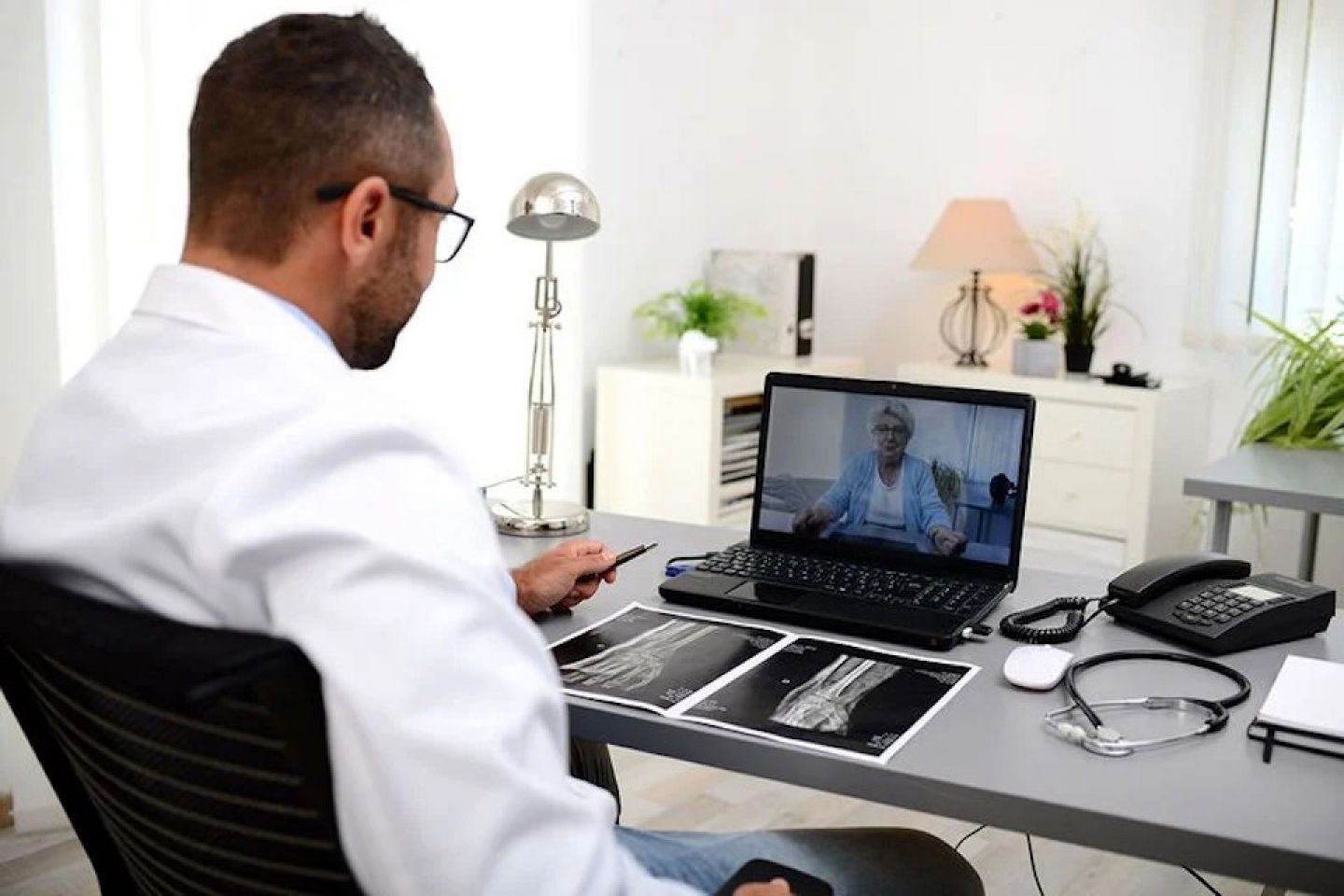
This article was originally posted on Crain's New York Business on August 17, 2020.
Earlier this year the Covid-19 pandemic forced metropolitan New York health care providers to rapidly implement telehealth solutions to replace inpatient visits with virtual ones. The shift has posed challenges ranging from technology access and insurance reimbursement to maintaining meaningful physician-patient relationships.
Fortunately, Weill Cornell Medicine had a head start. Its Digital Health Services were well established before the pandemic, enabling a smoother transition, said Dr. Geraldine McGinty, chief strategy officer and chief contracting officer at Weill Cornell Medicine.
“Literally, as soon as we started ramping down more routine in-person care, we were able to open that spigot and dial right up,” McGinty said.
Weill Cornell Medicine’s forays into telemedicine began in 2016 under the leadership of Dr. Rahul Sharma, in collaboration with New York-Presbyterian Hospital. He started Express Care, the first program of its kind to allow patients who came to the emergency department with less urgent health issues to see a doctor via telemedicine.
Other programs followed, including virtual urgent care and community tele-paramedicine, where paramedics follow up at home with high-risk patients after their hospital stay. During the visit, they connect the patients virtually with the appropriate specialists and coordinate the patient-doctor interaction in real time.
In late 2017 Weill Cornell Medicine’s primary care division, led by Dr. Adam Stracher, began offering its first telemedicine visits. By mid-2019, all of its physicians were capable of providing video visits, but the volume remained relatively small, amounting to just about 100 visits a day—until the onset of the Covid-19 pandemic.
That’s when visits shot up to about 2,000 a day, McGinty said.
At Weill Cornell Medicine, the telehealth journey begins even before connecting with the doctor for the virtual appointment. Patients complete a pre-check-in beforehand through the patient portal, Connect, where they can update their medical histories and list of medications and even settle their copays before the visit.
“That means that when they are seeing the doctor, it’s already a much more streamlined experience,” McGinty said.
Throughout the pandemic, Weill Cornell Medicine patients have seen their own doctors, who can easily communicate with their other physicians. That integrated care experience is vital to a positive telehealth experience, with physicians ordering necessary follow-ups and tests, and ensuring that results are shared with the patients seamlessly.
“The goal is to put the technology in the background as much as possible, so we can prioritize the provider-patient interaction,” McGinty added.
One distinct advantage of telehealth is that some patients will be able to see specialists outside of their immediate region that they couldn’t easily visit beforehand. Telemedicine also offers Weill Cornell Medicine the ability to reach new patients through its WCM OnDemand Second Opinion program.
Long term, the biggest promise for telemedicine may be the management of chronic diseases through the use of medical devices for remote monitoring at home.
“We believe this ‘hospital at home’ concept will continue to gain traction,” McGinty said.
Already some patients are monitoring their blood oxygen levels with pulse oximeters, providing an early warning of a possible Covid-19 infection.
Weill Cornell Medicine has been careful not to rush its implementation of telehealth, McGinty said. If patients have a bad experience with a virtual visit, they’re more likely to overutilize in-person care in the future.
“We do have to understand what is meaningful to our patients and see where it has a positive impact on outcomes,” she said.
As health systems embrace the expansion of telehealth, McGinty said, it’s important not to exacerbate existing health disparities. For example, Medicare and Medicaid must continue to allow billing for telemedicine visits, a policy that was implemented during the Covid-19 pandemic. It’s also important that telemedicine platforms are available in multiple languages and that systems make efforts to increase digital health literacy, so patients in underserved populations receive the care they need, she added.
“Obviously, we need more widespread broadband, access to smartphones or dedicated kiosks or devices for patients who don’t have them,” McGinty noted.
To make telemedicine work effectively, doctors need appropriate training. At Weill Cornell Medicine, Sharma developed a comprehensive training program through the Center of Virtual Care. During the peak of the pandemic, it trained several hundred providers across the New York-Presbyterian enterprise, McGinty said.
“While our view is that providers must complete a formal training program before conducting telemedicine visits, the majority of our providers have flourished using telemedicine, even those who were skeptics at the beginning,” she said.
Telemedicine has its limits, of course. It can’t be used when a physical exam is required, and it doesn’t always offer the same satisfaction as an in-person visit.
McGinty, a radiologist, misses the heartfelt personal interactions with the patients under her care.
“I can’t tell you how many times I give patients good results and I get a hug,” she said. “I think we are all missing that right now.”